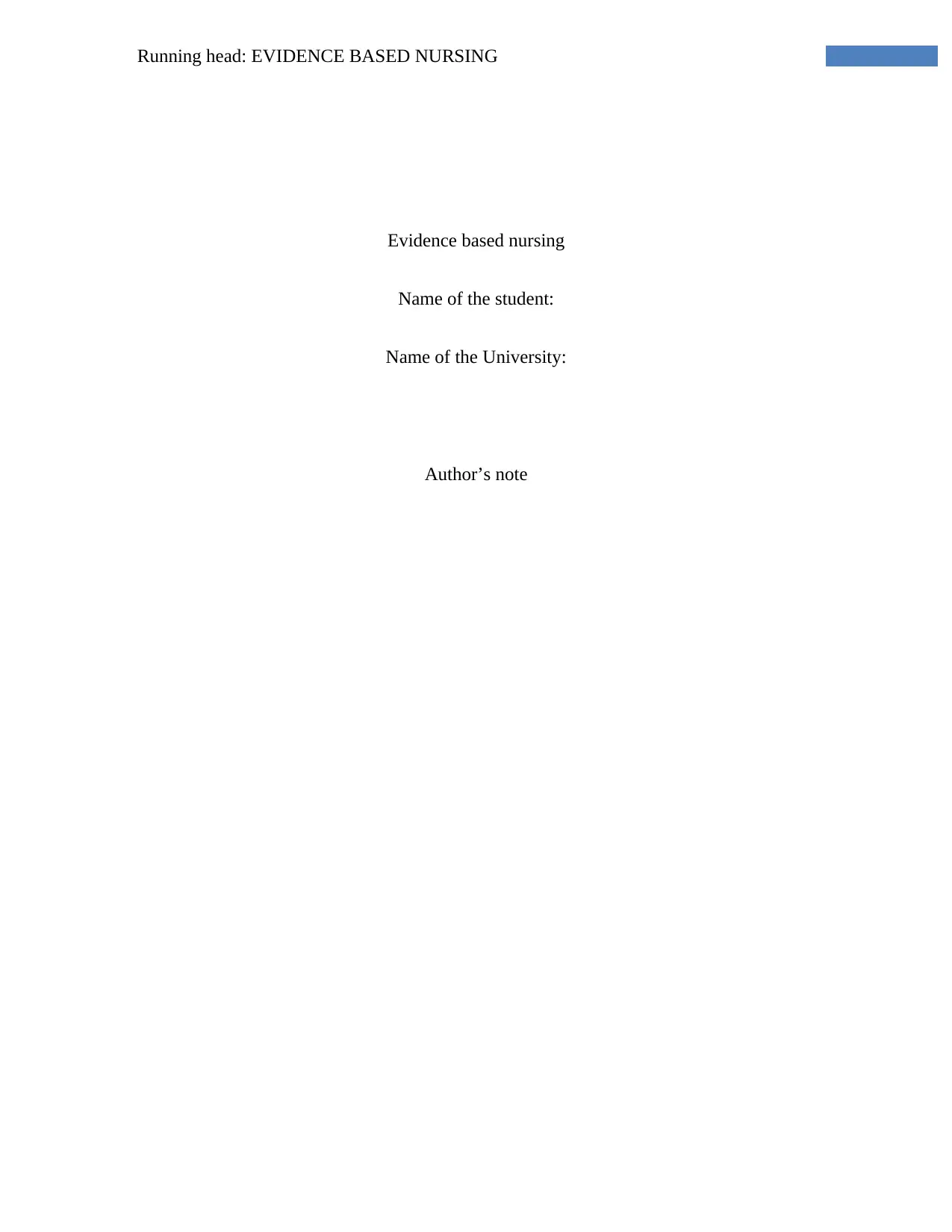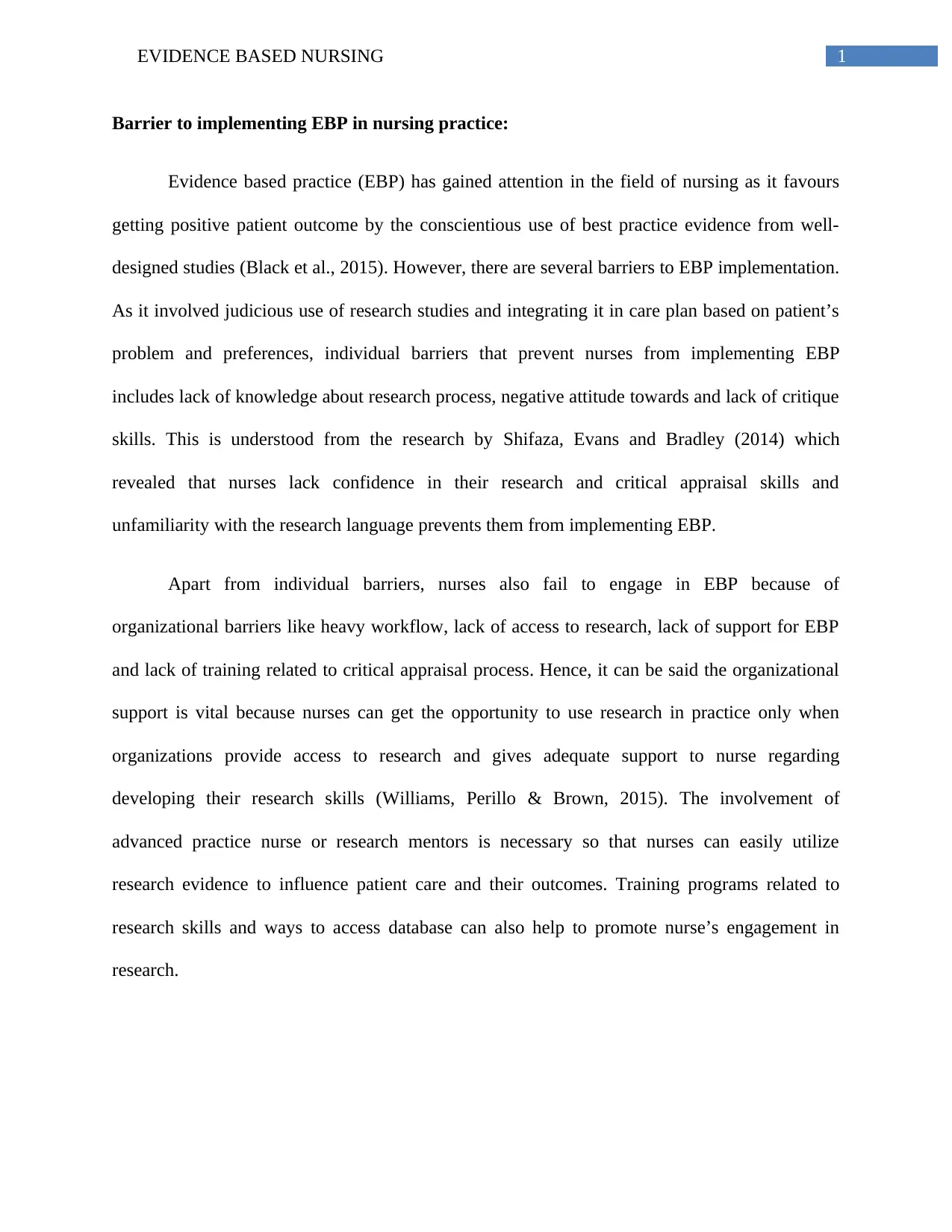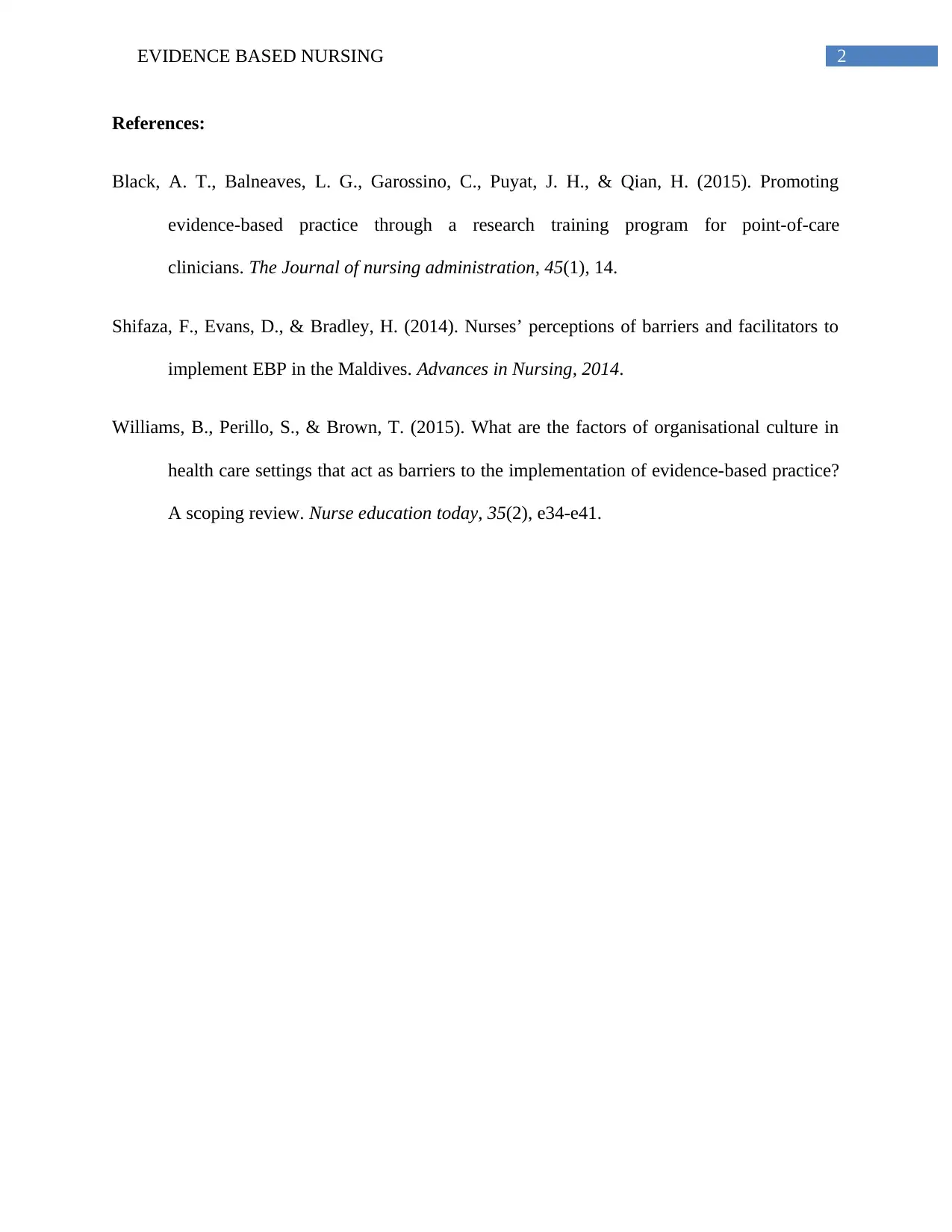Investigating Barriers to Evidence-Based Practice in Nursing: A Report
VerifiedAdded on 2023/04/20
|3
|461
|419
Report
AI Summary
This report delves into the barriers hindering the implementation of evidence-based practice (EBP) in nursing. It identifies both individual and organizational obstacles. Individual barriers include a lack of research skills and a negative attitude towards EBP. Organizational barriers encompass heavy workloads, limited access to research, and a lack of support for EBP initiatives. The report highlights the importance of organizational support, including access to research resources and training programs, to empower nurses in utilizing research findings to improve patient care. References to relevant studies such as Black et al. (2015), Shifaza et al. (2014) and Williams et al. (2015) are included to support the arguments presented.
1 out of 3










![[object Object]](/_next/static/media/star-bottom.7253800d.svg)